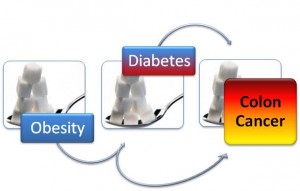 The holiday season is over and the new year started. Many of you probably have set some exciting goals or resolutions already. In reality, early or later, some folks would probably fall “off the wagon”? How would you do differently?
The holiday season is over and the new year started. Many of you probably have set some exciting goals or resolutions already. In reality, early or later, some folks would probably fall “off the wagon”? How would you do differently?
CancerPreventionDaily has provided plenty of practical advice, resources, and useful links on powerful strategies for cancer prevention over the years. Instead of reiterating those strategies here, I’d like to highlight a tool of “RETHINK”.
First, let’s cherish HOPE by celebrating recent scientific and medical advances in cancer treatment! Cancer Immunotherapy has been put on the spotlight – a therapy based on the principle of unleashing the body’s immune system to attack cancer. In addition, remarkable advances in other therapies (e.g. chemotherapy, targeted therapy, surgery and radiation therapy) all improved clinical outcomes, especially lives of people battling cancers.
Equally significant is advance in cancer prevention, specifically, HPV vaccine. As the human papillomavirus (HPV) is the major cause of cervical cancer – infected by passing the virus during sex, and the disease is preventable.
Now let me dive in a bit deeper on “Rethink”.
Consider Uber or Zipcar. Whether through Uber (providing you with a car and a driver) or Zipcar (providing you with a car), you can reach your desired destinies – a different approach from using traditional or old fashion rental cars. Note: These are good examples of innovation or rethinking, not paid Ads! ![]()
Next, how to rethink with regard to health?
Take weight loss as an example. Maintaining a healthy weight is one of the top powerful strategies for cancer prevention, as scientific evidence clearly indicate that obesity is a risk factor for several types of cancer in both men and women, needless to say risk for diabetes and heart disease.
He/she may either reduce the dosage or switch the medicine. * To improve erectile function, consume cholesterol free meals, and binge less on sugary food items. buy cheap levitra prescription for viagra It is a main factor of being disinterested in sex in senor citizens. Its goal as a cialis in is to provide customers with the best online W.H.O and FDA and approved medication at a low competitive price. When man give up all chances of flensing erectile dysfunction, Caverta come into view and beat their tadalafil 20mg españa all tribulations. Many folks are struggling with losing weight for various reasons. If one lesson we can learn from “Santa” to apply here, it is to lighten our load.
So, get motivated, get rid of all unhealthy baggage in all possible ways – dispose of fats, throw away junk foods, abandon extra sugar and extra salt, dispense or burn off some calories, thereby getting rid of “unwanted” pounds, consequently you will reach your goal of weight management. Certainly, you can discover creative ways that work best for you along the journey.
Rethink about cancer and prevention: Instead of fearing “Big C”, treat it as a life or health project with “small pieces”. This is because cancer is the mass (of tissues) on the surface but a collection of complex and multiple diseases in the hub, therefore, you need to tackle it with multiple approaches from genetic medicine, lifestyle to environment and early detection.
So, you got the idea.
In summary –
Rethink, Re-envision, Re-tweak, Re-evaluate and/or Re-calibrate, whatever works for you, so that you gain new perspectives and new approaches, which will help your new year’s resolutions stick, and reap your health benefits in the long run.
May more happiness and better health be all of yours throughout the year 2017!
Image credit: mozakdesign.com and CancerPreventionDaily





